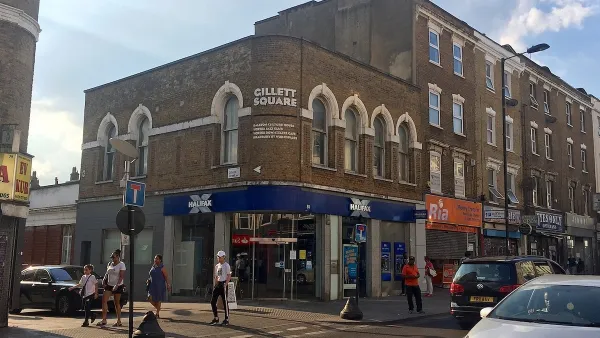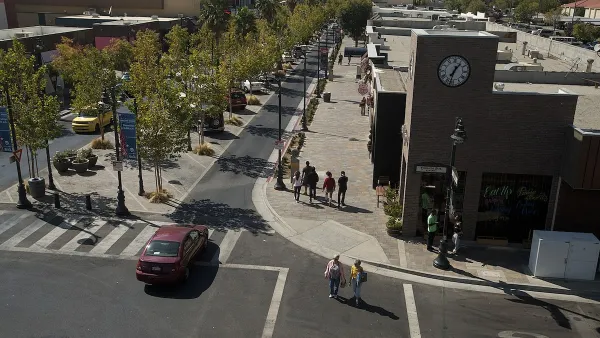Allison Arieff finds fault with the nation's uninspired conversation on infrastructure. When urban design projects have more emotional appeal, she argues, they can unify rather than divide.

According to Allison Arieff, infrastructure projects have largely lost the grand appeal they once possessed, both within the planning community and among the general public. "There is no awe. There are issues of structural integrity. There are mind-blowing cost overruns. Accidents. Sinkholes. Problems with bolts."
While projects like the Golden Gate Bridge once inspired the nation, "A century later, we've lost our collective faith in the power of great projects like the Golden Gate, not to mention our trust in the government to fix a pothole on time and on budget, let alone create an inspiring bridge. How can we restore that faith in possibility?" Arieff holds up Atlanta's BeltLine as one contemporary example of that faith.
She also takes aim at planners and other professionals for using too much uninspired jargon. "Yet engineers, planners and policy makers tend to focus on wonky stuff like percentage of parkland per person. They're awash in acronyms like V.M.T. (vehicle miles traveled), too reliant on planning terms like modeshare that don't resonate with the general public. These things may be useful in measuring the metrics of a city, but they sure don't get to the reasons people want to live there."
She concludes, "In an age of cost overruns, project delays, safety risks and the other, seemingly infinite obstacles to infrastructure, this all might sound awfully reductive, even naïve. But keeping our eye on what's possible is certainly as important as fixating on what isn't."
FULL STORY: What Happened to the Great Urban Design Projects?

Maui's Vacation Rental Debate Turns Ugly
Verbal attacks, misinformation campaigns and fistfights plague a high-stakes debate to convert thousands of vacation rentals into long-term housing.

Planetizen Federal Action Tracker
A weekly monitor of how Trump’s orders and actions are impacting planners and planning in America.

In Urban Planning, AI Prompting Could be the New Design Thinking
Creativity has long been key to great urban design. What if we see AI as our new creative partner?

King County Supportive Housing Program Offers Hope for Unhoused Residents
The county is taking a ‘Housing First’ approach that prioritizes getting people into housing, then offering wraparound supportive services.

Researchers Use AI to Get Clearer Picture of US Housing
Analysts are using artificial intelligence to supercharge their research by allowing them to comb through data faster. Though these AI tools can be error prone, they save time and housing researchers are optimistic about the future.

Making Shared Micromobility More Inclusive
Cities and shared mobility system operators can do more to include people with disabilities in planning and operations, per a new report.
Urban Design for Planners 1: Software Tools
This six-course series explores essential urban design concepts using open source software and equips planners with the tools they need to participate fully in the urban design process.
Planning for Universal Design
Learn the tools for implementing Universal Design in planning regulations.
planning NEXT
Appalachian Highlands Housing Partners
Mpact (founded as Rail~Volution)
City of Camden Redevelopment Agency
City of Astoria
City of Portland
City of Laramie





























